Blue Heelers: Antisocial or An Introvert's Best Friend?
Blue heelers are stereotyped as antisocial dogs, but what does it really mean to be "antisocial?"
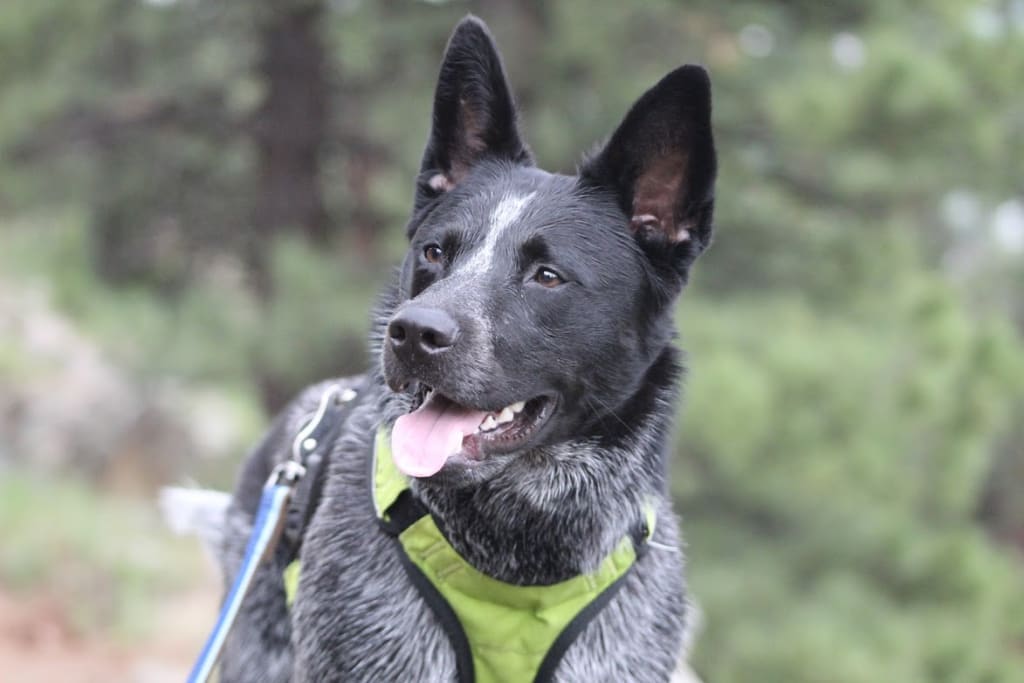
Australian cattle dogs, more commonly known as blue heelers or red heelers, represent a breed of hard-working herding dogs. Blue heelers, much like border collies and Australian shepherds, were bred to watch over cows and sheep as they grazed in the field. They're natural workers who instinctively know how to move a group of animals. In fact, that's the reason they're called heelers; blue heelers herd livestock by nipping at the ankles and heels of the animals they're in charge of watching. It's a pretty neat trick, just not when your heeler is biting at YOUR heels.
When people think of blue heelers, they usually picture a high-energy, loyal and protective dog that may be antisocial. But are heelers really antisocial dogs?
Antisocial, Or Independent?
Firstly, I don't really like the term, "antisocial." As someone who has had the pleasure of raising two blue heelers, I have experienced first hand the strong social bonds that this breed can develop.
The word "antisocial" itself makes it sound like blue heelers don't like to be around people or other dogs, or worse, that they are naturally aggressive. In the dog world, antisocial typically means that a dog hasn't been properly socialized and doesn't get along well with others.
All over the internet you'll find tips and tricks on how to prevent or fix antisocial dog behavior, but very few go into detail on what it really means to be an antisocial breed. Instead of thinking of heelers as an antisocial breed, more people should accept that they are simply independent.
Many people think that dogs should always be social because they're pack animals. However, this doesn't mean that dogs have to like hanging out with other dogs all the time. Do you always like hanging around other humans all the time? For some people, the answer could be yes, but for others, the answer may be the opposite.
Just like humans, dogs can be more independent, or introverts if you will. If you're similar to nearly half the population, then you too prefer to stay at home for a relaxing night alone or with only your closest family and friends. Blue heelers are more on the introverted side and prefer to be with their humans, whether that be at home or on an adventure.
Independence is not a bad trait in a dog. You may find that a heeler's independence and introverted tendencies makes them the perfect buddy. Because heelers are more introverted, they become very attached to their humans. Generally, heeler's pick one human to become super attached to, but of course will love their entire family.
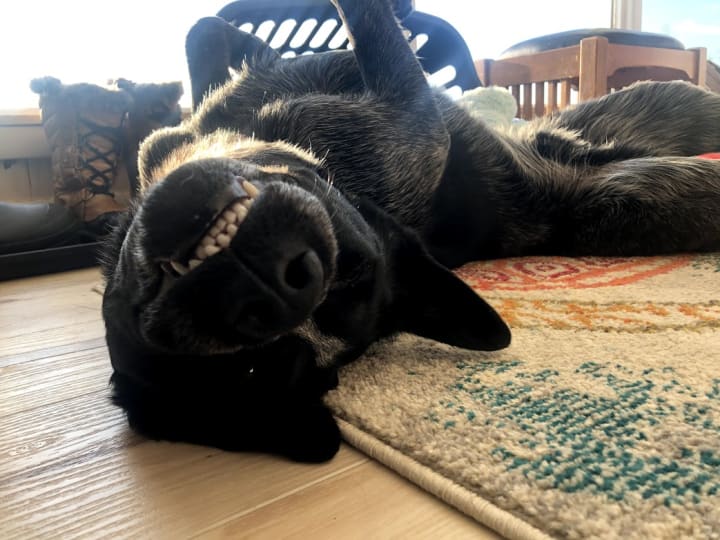
What Traits Make Up An Independent Dog?
In short, blue heelers are independent, meaning they typically like to do their own thing. Being independent is a valuable trait if your main job has historically been to sit in a field by yourself and watch the cows all day, and many heelers have perfected this trait.
Being an independent dog, a blue heeler may not go up and greet every human they meet. You may be hiking on a busy trail or walking on a sidewalk and your dog may not be interested in smelling each person who passes.
Your independent heeler may also find their own entertainment and may not need you to guide their activities all day long. A blue heeler may be perfectly content with sitting by a window with his chew toy or laying in the grass out in the yard. All in all, Australian cattle dogs simply enjoy their own company.
Because they're such smart dogs, some heelers can be pretty stubborn. The good news is that blue heelers are rather easy to train, but they're smart enough to know how to push your buttons at times. With early and consistent training, your heeler can become the perfect family companion.
However, independence does not mean your dog will avoid you. In fact, blue heelers are very affectionate towards the humans they consider to be in their packs. Like human introverts, blue heelers choose a select few people as their best friends. Once you've bonded with your heeler, you will always be greeted at the door with slobbery kisses and enjoy warm cuddles on the couch.
Independence Is A Range
Just like human introverts, blue heelers have a range of personality traits. I have two blue heelers who could not be more different. While one blue heeler is the typical independent Australian cattle dog who is loyal, protective, and loves his tennis ball, the other is a complete goofball who loves to cuddle, needs to know where his humans are at all times, and plays with every dog he meets.
While some dogs are typically bred for certain traits, it doesn't mean that all dogs of that breed will reflect that standard. My heelers, Apollo and Bruno, are biological brothers, yet they both have drastically different personalities. This goes to show that stereotypes do not have to define a dog. Each dog is unique and will have their own traits.
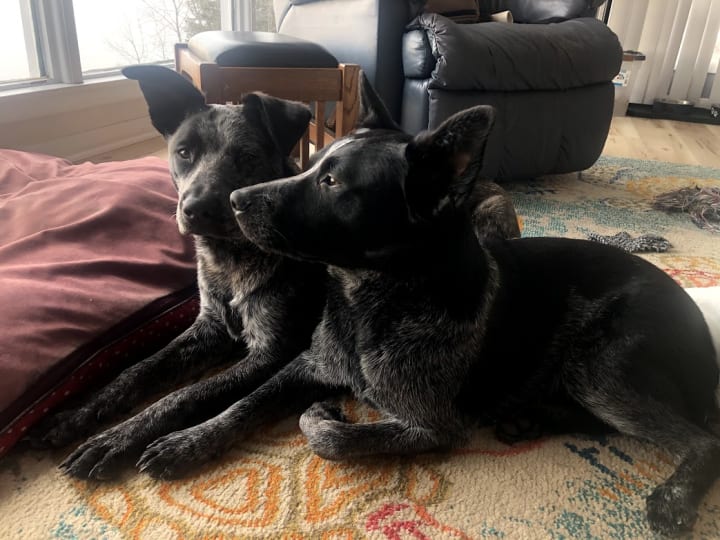
Early Socialization Is Key
While being independent is not necessarily a bad trait, your blue heeler does need to know how to behave around other dogs. Without proper socialization, your blue heeler may not know how to act around other dogs, and thus may act frightened or show some signs of aggression. However, with good socialization, your heeler will likely be perfectly fine around other dogs, cats, and people.
If you plan to get your heeler as a puppy, then you can plan ahead for early socialization. While some veterinarians recommend waiting on socializing until your puppy has received all their shots, you may want to find some ways to introduce your puppy to other dogs. If you don't have another dog at home, it may be worth it to ask family or friends for puppy play dates with dogs who have already been vaccinated.
However, don't fret if you can't find your puppy a playmate. Once your puppy has all its vaccinations, you can start going to dog parks, taking walks in busy areas, and introducing your heeler to other dogs.
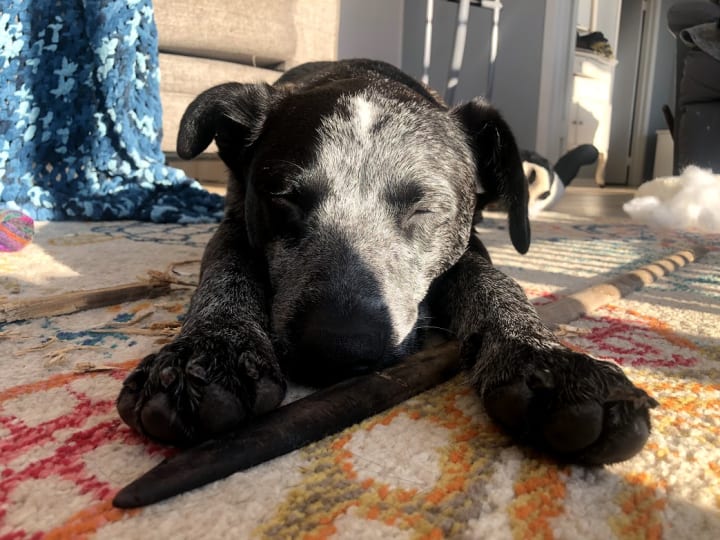
Blue Heelers As An Introverts Best Friend
If you're looking for a canine companion to stay at home with on a Saturday night, then a blue heeler may be the dog for you. Blue heelers are loyal, loving, and have all around great personalities. Sure some of them will be more stubborn than others, but your heeler will bond to you like no other, and you to them.
About the Creator
Isla Berry
Fueled by black coffee and Lucky Charms, I'm ready to take on the world one short story at a time. Passionate dog mom, fantasy junkie, and lover of all things steamy.


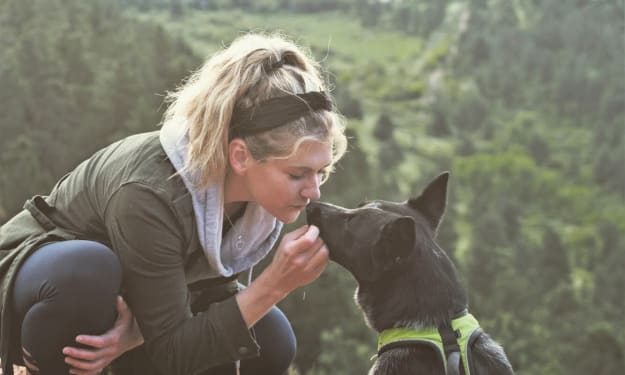

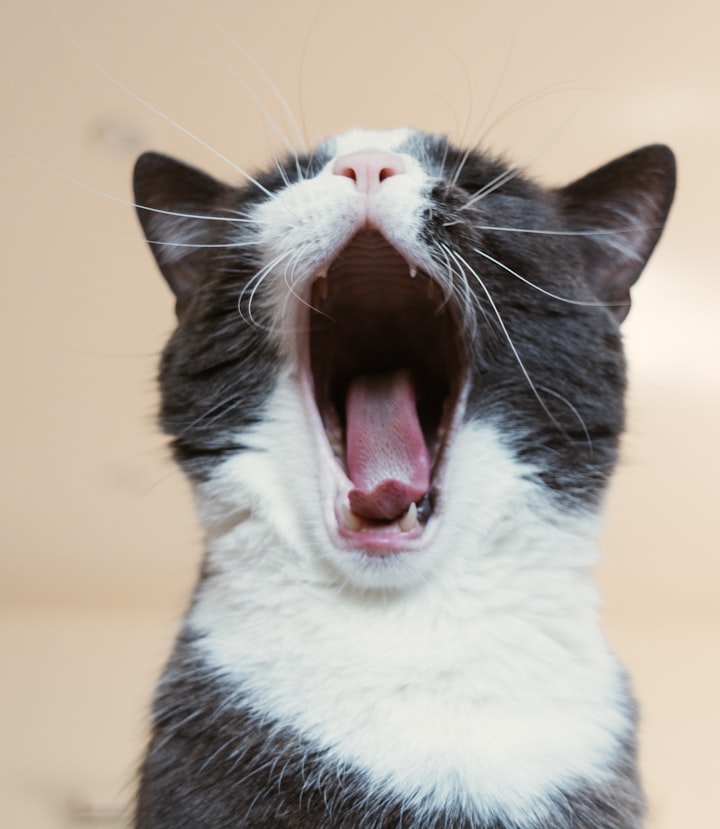

Comments
There are no comments for this story
Be the first to respond and start the conversation.